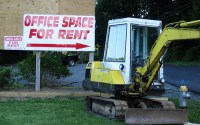May 5, 2017
Community Association Dispute Resolution Procedures in Virginia
When owners have disputes with their condominium or HOA boards, sometimes it is unclear where or how they must go about seeking redress or defending their rights. Owners must understand how association dispute resolution procedures work so that they do not prejudice their own claims or defenses by failure to go to the proper forum or meet deadlines. What options are available will depend upon the facts of the case and the governing documents. Sometimes it can feel like a labyrinth without an aerial view of sorts. The following is a summary overview and is not intended to explain everything:
Litigation:
In the absence of other dispute resolution procedures, owners have the option of filing or defending a lawsuit. The Property Owners Association Act and Condominium Act both provide that owners or associations may bring suit in order to enforce the declaration of covenants. They also provide that the prevailing party shall receive an award of reasonable attorney’s fees. The Supreme Court of Virginia recently made an owner-favorable decision on the issue of attorneys fees. See my post, Condo Owner Prevails on her Request for Attorney Fees.
Some suits where the amount in controversy is $25,000.00 or less can be brought in the General District Court (GDC) for the city or county where the property is located. The advantage of the GDC is that cases go to trial faster and are in most situations less expensive to litigate. Suits over $25,000.00 or where equitable remedies are sought by the owner must be brought in the Circuit Court. The procedures there are more complex. This blog post explains how they usually start, The Beginning of a Virginia Circuit Court Case. Community association cases usually don’t end up in the U.S. District Court. If one of the parties is in bankruptcy, the case may end up in the U.S. Bankruptcy Court. While litigation is more time-consuming and laborious than some other dispute resolutions options, the outcomes tend to be more favorable because of the independence of the judiciary.
Internal Nonjudicial Dispute Resolution:
The most common “venue” for resolution of disputes between owners and boards is internally within the association’s governance structure. Declarations of covenants, bylaws, architectural standards, rules & regulations and articles of incorporation may provide for claims to be brought by owners or the association before the board of directors or the architectural review committee.
The most notorious form of this is where the association issues a notice to an owner that she has violated a covenant, rule or regulation and must appear in a hearing before the board or committee. See, Don’t go it alone on a Notice of Violation. The courts allow this under the statutes, but there must also be provisions in the covenants that allow for the association to assess nonjudicial fines. These procedures are controversial because they allow the association to act as prosecutor, judge, jury and collection agent in their own case.
Sometimes owners have disputes with one another over party walls or boundary fences. Many covenants have provisions that require them to submit disputes over party walls or boundary fences to the board of directors as arbitrator. I don’t like these provisions because board members typically don’t have experience or training as arbitrators. Arbitration is not the same as rules violation hearings. Board members may have a vested interest or bias in the outcome of the party wall arbitration.
Some newer governing documents have internal dispute resolution procedures that seem all-encompassing. For example, an owner may be required to exhaust detailed procedures under the governing documents before acquiring the legal right to bring suit. Rules may require deadlines and procedures for seeking board of directors “appellate” review of decisions adverse to the owner. This may require an owner or their lawyer to compare multiple governing documents and to analyze them under Virginia statutes and case-law to determine whether action is necessary in order to protect one’s property rights. If the owner fails to first exhaust the” internal remedies” before going to court or fails to follow some dispute resolution procedure, they may be prejudiced in their ability to get a judge (or arbitrator) to consider it on its merits.
In general, the world of these internal nonjudicial procedures favors the boards. Not only do they sit as decision makers, they also may have authority to record liens, foreclose or even act as trustee in condominium termination proceedings. That said, owners should not ignore these procedures. If the board fails to follow its own internal rules, then that may position the owner for a favorable outcome in litigation or arbitration. The board has no authority outside of what the covenants and statutes create. See, Do your association’s parking rules pass the small test?
Arbitration:
Virginia law allows community associations to put binding arbitration clauses in their covenants. This means that in the event of a dispute, an owner may find out that they cannot simply bring the case before the judiciary. Arbitration clauses typically designate a company such as the American Arbitration Association as the “venue” that acts in the place of a court. Sometimes, arbitration can be more expensive to the participants than litigation. Significant up-front fees may be required. The covenants may require the case to be arbitrated through an agency that has cozy relationships with real estate industry people and doesn’t have a consumer protection orientation. The arbitration process doesn’t favor the “little guy.” See, Overcoming Delay Tactics in Arbitration.
Office of the Ombudsman of the Common Interest Community Board:
If there weren’t already enough potential venues, the General Assembly created another one. If an owner has a grievance against a board or licensed property manager, they may submit an adverse decision to the state Common Interest Community Board for review. This has been touted by some as a way of having a government regulator review the legality of a board or property manager action without having to court or arbitration. As my previous blog post explains, the Ombudsman does not render decisions adverse to boards where the parties are arguing opposing interpretations of statutes or governing documents. See, Condo Owner Prevails on her Request for Attorney Fees. Since both sides need to take opposing interpretations for a dispute to arise in the first place, this is not a useful process for an owner to pursue when they are concerned about the outcome.
+++
In my practice, I prefer to help clients to understand and protect their rights without unnecessary legal action. Ideally, boards and owners can negotiate a mutually acceptable outcome without going to court or arbitration. Unfortunately, this is not always possible in many owners’ circumstances. When a HOA or condominium board seems to be taking improper action or failing to fulfill its obligations under the governing documents, owners need to know where they can turn to obtain useful and cost-effective relief. As this survey shows, in Virginia there is a potentially confusing array of procedures and venues. An owner can potentially become focused on one or two and run the risk of having a deadline expire on bringing the claim properly. When owners need some help making sense out of the governing documents, laws and correspondence from the association, they need an attorney who practices community associations law but isn’t allied with the boards or association industry. That’s why I started my little firm where we don’t accept cases where we represent boards.
photo credit: –v Laberint d’Horta via photopin (license)
February 12, 2015
The Beginning of a Virginia Circuit Court Case
Many people will never be party to a lawsuit that goes to trial. For those that do, the first time may be the only time. Being a party to a Virginia circuit court civil case requires significant time, focus and resources for what may be several months or longer. What should a party expect from the beginning of a Virginia circuit court case? Because of the commitment required, parties to a lawsuit should familiarize themselves with the basics. This article is the first installment in a series providing a basic overview of Virginia circuit court civil cases. While the circumstances and details of each case are unique, the rules of court provide a basic outline of what to expect.
Pre-Lawsuit Negotiations: Before a lawsuit is filed, the parties and their attorneys usually communicate in efforts to achieve desired results without the necessity of a lawsuit. They exchange emails, demand letters, settlement offers and other correspondence articulating their interests, position and requirements. Why engage in this process if there already are grounds for a lawsuit? In the facts of many cases, there is a reasonable likelihood that the case can be settled without the necessity of filing suit. Not every case that ought to settle in fact resolves without filing suit. However, once suit is filed, the parties will be required to conduct the case in addition to engaging in any desired settlement negotiations. Often it is worthwhile to first see if things can be negotiated.
Filing the Complaint: If settlement negotiations don’t work, a party’s first step towards obtaining a judgment may be to file a complaint at the circuit court clerk’s office. In real estate and construction cases, this is usually done at the courthouse for the city or county where the property is located. Most real estate or construction cases are brought in Circuit Court. However, if the amount in controversy is $25,000.00 or less, the case will probably be brought in General District Court. Alternatively, some cases are brought in federal court.
To begin the case properly, the plaintiff’s best interests are served by investigating and analyzing the case with the lawyer. The complaint should include the proper parties with their correct names. The claims (e.g., breach of contract, breach of warranty, fraud, etc.) should be carefully considered and supported by sufficient factual allegations. The remedies (e.g., money judgment, declaration of rights, etc.) requested to the Court should be clear and supported by the claims. The parties defending the lawsuit can be expected to attack the complaint in whatever way they can. Making the complaint as strong as reasonably possible positions the plaintiff to have a greater likelihood of obtaining a favorable result in court or settlement. The plaintiff normally bears the burden of proof for the claims in the complaint. Parties should avoid simply putting some allegations together that merely forces the other side to respond. Time and focus spent on the complaint may prevent more time unnecessarily being spent strengthening or disputing over a claim later.
Service of Process: A lawsuit cannot proceed unless the defendants are formally put on notice. Normally this consists of having a sheriff’s deputy or private process server going out to each defendant’s house to serve them. There are several alternatives to direct hand delivery of the complaint on the defendant that may apply. Usually it takes a few days for the court personnel to process the paperwork. If the lawyers for the parties are already introduced, often the attorney will provide the defendants with a courtesy copy of the complaint before it is served.
Defendant’s Initial Response: Once the defendant is served, he normally has 21 days in which to respond. Failure to respond in a timely manner or obtain an extension can result in that party falling into default. Falling into default can result in significant waiver of rights to defend the lawsuit and possible entry of default judgment. Usually, defendants respond initially to complaints by filing a “demurrer” or some other motion designed to have the lawsuit dismissed. In the Virginia circuit courts, defendants often make substantial efforts in these early demurrers and motions. Unlike some other states, the defendant’s ability to get a case dismissed on a later pre-trial motion is limited in Virginia state courts. Since the plaintiff bears the burden of proving the allegations and generally upholding the legitimacy of the lawsuit, there are many possible grounds for a defendant to seek dismissal. What is a demurrer? At this stage the defendant usually cannot successfully challenge the truth of the facts asserted in the complaint. Instead, the demurrers typically argue that, for whatever reason, the complaint is not legally sufficient and must be revised or abandoned. For example, a plaintiff may allege various forms of wrongdoing and damages suffered. However, if a claim fails to properly articulate a causal connection between the wrongful conduct and the damages suffered, the defendant will probably argue that it is not legally sufficient. The demurrer or motion to dismiss may require a court hearing where the attorneys will argue before a judge over the sufficiency of the lawsuit. The parties themselves are usually not required to attend these hearings but may do so if they wish.
Defendant’s Answer and Affirmative Defenses: At the end of this initial motions practice phase, the defendants are usually left with claims that have survived and must be responded to directly. This is done by filing an answer containing numbered paragraphs responding directly to those in the complaint as admitted, denied or whatever other response is appropriate. In the same document, the defendants will also identify their affirmative defenses. For example, the defendant may assert fraud, that the plaintiff waived her rights by taking too long to file suit, or other defenses. Some affirmative defenses must be put with the answer to avoid being waived.
Additional Claims: A defendant may have a claim against the plaintiff, another defendant or a third party that may be related to the facts of the case. This initial response phase is the normal time for such claims to be asserted. A counter-claim, cross-claim or claim against a third party is in many respects treated like a separate lawsuit that will go to trial with the initial lawsuit because of the common factual issues.
Scheduling Orders and Trial Dates: Around this time the court will set the trial date. A party should provide her attorney with dates to avoid (vacation, travel, etc.) for trial. Additionally the attorney and client will discuss whether a trial by or without a jury should be requested. When the attorneys set the case for trial, the court may enter a scheduling order setting certain deadlines for the progress of the case. Once the trial date is set, the attorneys, parties and witnesses should reserve the trial dates on their calendars.
There is a lot of activity that goes on in a Virginia circuit court case before the parties give their own personal testimony. In the next installment in this series, I will provide an overview for the discovery process, where each side requests testimony, property viewings, documents and information from their opponents and third parties. The facts and circumstances of each case are different and may require additional procedures or other variations from the outline provided above. If you have a real estate or construction claim against another party, discuss the matter with a qualified attorney to avoid unnecessary waiver of any rights. If you have been made a defendant to a lawsuit, consult with an attorney admitted to practice before the court where the suit is filed to avoid falling into default or other waiver of rights.
April 16, 2014
Unlicensed Real Estate Agent Costs Brokerage $6.6 Million Commission
What tasks can real estate brokerages assign to employees lacking a real estate license? What risks does a brokerage run from allowing unlicensed agents to manage relationships with clients and other parties to the transaction? On April 4, 2014, Judge Anthony Trenga decided that a prominent commercial broker forfeited a $6.6 million dollar commission because a leading member of its team lacked a Virginia salesperson’s license. This blog post discusses how the brokerage lost the commission on account of the unlicensed manager.
The Hoffman Town Center is a 56 acre mixed-use development in Alexandria, Virginia. (Yours truly lived in Alexandria for 9 years. AMC Hoffman was my local movie theater. I ran across the finish line in the George Washington’s Birthday 10K race at the Town Center.)
The Landlord, Hoffman Family, LLC, sought office tenants for the development. In August 2007, Hoffman retained Jones Lang LaSalle Americas, Inc. (“JLL”) as its leasing agent. JLL itself has a valid Virginia broker’s license.
In October 2007, Arthur M. Turowski retired from the U.S. General Services Administration. JLL hired him as a Senior Vice President and assigned him to manage the Hoffman account. Torowski saw an opportunity to lease the property to the National Science Foundation. He marketed the property to the GSA, who successfully bid on behalf of the NSF. Turowski negotiated with GSA and city officials. He signed documents on behalf of JLL. In May 2013, Turowski achieved a $330 million lease for his client from the federal government. The NSF will be an anchor tenant in the development. See Jonathan O’Connell, Wash. Post, Judge Rules for Developer in $6.6 million National Science Foundation Suit.
Mr. Turowski helped Hoffman outshine other suitors and land a sought-after tenant. Unfortunately JLL made one oversight: Turowski lacked a real estate agent’s license while performing the work. Hoffman discovered this fact while defending a lawsuit brought by JLL for payment of the $6.6 million dollar commission (JLL rejected Hoffman’s offer of $1 million).
In its ruling, the U.S. District Court for the Eastern District of Virginia discussed the broad scope of activities for which Virginia law requires a license:
1. Activities Requiring a Licence. The legal definition of “real estate salesperson” is “clearly intended to capture the realities and breadth of activities that make up the leasing process.” This strengthens the real estate sales profession by recognizing business realities and restricting the scope of activities unlicensed persons may engage in. Va. Code Sect. 54.1-2101 “Negotiation” is a broad professional activity not limited to agreeing to a property and a price and signing documents.
2. Activities Not Requiring a License. The Virginia Code provides for a narrow set of activities an employee of a broker may do without a license, such as (a) showing apartments if the employee also works on the premises (b) providing prospective tenants with information about properties, (c) accepting applications to lease and (d) accepting security deposits and rents. Va. Code Sect. 54.1-2103(C). These do not include relationship management and negotiation on behalf of a client. JLL’s lawyers argued that Turowski did not engage in activities requiring a license. If that was the case, what licensee-level work earned the commission? The opinion notes that GSA opted to deal with some matters with Hoffman directly because JLL represented other landlords competing for the NSF tenant.
Judge Trenga found that Virginia law required Turowski to hold a license to work under JLL’s agreement with the Hoffman Family. Since he did not, the Court denied JLL’s request for any portion of the commission. The Court observed that a realtor agreement between an unlicensed agent and a client is void. JLL did have a broker’s license and Hoffman’s contract was with JLL. However, Virginia law does not allow brokers to use unlicensed employees as sales persons. The Court decided that JLL’s use of Turowski voided its commission. Even if a listing agreement is valid at the time it was signed, if the brokerage performs under it through an unlicensed salesperson, that performance violates public policy and voids the commission.
The opinion does not discuss whether any other JLL personnel worked on the Hoffman account. I wonder whether JLL would have received a monetary award if licensed sales persons performed some of the work? Perhaps the outcome would have been less harsh if Turowski was not the leader?
Could a licensed real estate sales persons have achieved a greater result for Hoffman? The opinion does not discuss specific damages that arose out of JLL’s failure to use licensed sales persons in performance of the agreement. The underlying agreement was not per se void. In the end, Hoffman got a $330 million lease negotiated by an (unlicensed) agent with deep familiarity with the agency he negotiated with. Unless the verdict is disturbed on appeal, Hoffman does not have to pay anything except its attorney’s fees defending this suit.
Daniel Sernovitz of the Washington Business Journal observes that this litigation gave both the developer and the broker black eyes. Sernovitz points out that JLL’s lawsuit cast a cloud over the project. The possibility of reversal on appeal keeps a shadow of doubt on whether Hoffman will have an extra $6.6 million to help finance the next phase in the development. Lastly, the Hoffman-JLL relationship was mutually beneficial prior to this fee dispute. JLL’s relationships could procure additional tenants. Hoffman may have to rely upon other brokerages moving forward.
Do you think that use of an unlicensed real estate agent presents the same risk to residential brokers?
case cite: Jones Lang LaSalle Americas, Inc. v. Hoffman Family, LLC, No. 1:13-cv-01011-AJT, 2014 WestLaw 1365793 (E.D. Va. Apr. 4, 2014)(Trenga, J.).
December 31, 2013
Can My Landlord Evict My Business Without Going to Court First? – Part I
Part I – Landlord Self Help in Virginia
Suppose a company leases commercial property to run its business. Due to economic conditions, the tenant struggles to pay rent. The landlord has declared the tenant in default, or is threatening to do so. One of the remedies asserted by the landlord is “self-help” such as changing the locks and removing the business’ property from the premises. Can the landlord do that? What strategies and considerations are available to the tenant in such a situation?
When a tenant of a commercial property falls into default under the lease, or such default is imminent, knowing what options the landlord has moving forward is essential. The tenant making present use of the leased premises needs to know the landlord’s potential legal remedies so it can craft its own plan for the immediate future and to provide a framework for negotiations. In Virginia, and other jurisdictions where landlord self-help is permitted, threats such as changing the locks or otherwise barring the tenant from re-entry, removal of the property from the premises and placing it elsewhere may be the most urgent concern to a struggling commercial tenant. Understanding the respective rights of the landlord and tenant are crucial to planning continuity of business operations and safeguarding company property.
In Virginia, a landlord in a residential lease has no right of self-help eviction. However, the right of self-help remains an option for non-residential leaseholds. The commercial landlord is limited to using reasonable force in taking possession of the property upon default. The landlord may not “Breach the Peace” in taking possession. In other words, confrontation threatening physical harm is not permitted. Self-help may be attractive to the landlord in order to make an urgent transition to a new tenant without having to go to Court, take the case to trial and have the sheriff come out to the property.
While the remedy of self-help is legal in Virginia in non-residential matters, there are several considerations that make landlords reluctant to pursue it. In Part II, I will discuss several reasons why landlords usually avoid trying self-help eviction.
December 27, 2013
Client Relationships for the Custom Home Builder in 2014
In the past year or so, demand outpaced supply in the Northern Virginia real estate market. Many home builders and tradesmen went out of business in 2008-2009, creating a shortage of home builders. For home buyers, a custom home offers the prospect of owning a made-to-order dream home. For the builder, the custom home business brings rewards as well. These include the pricing of a premium product and working closely with buyers to help them fulfill their dreams. These dreams bear the legal complexity of contracting for the sale of something that does not yet exist. For the buyer, this is the biggest consumer purchase of their life. They rightly take pride of ownership in the project. This blog post identifies a few key issues from the perspective of the custom builder for the New Year:
- Liability Shield. You stand behind your work and want to keep your customers happy. This is how business grows. At the same time, you owe it to yourself and your family to protect your personal assets and credit. Customers expect that they will be doing business with a company. By incorporating or forming an LLC prior to making contracts, custom builders can exercise reasonable control of the exposure of their own credit and assets. Communications and agreements with customers should clarify the seller’s identity.
- Choosing the Customer. Prospective customers are likely talking to other builders or realtors. If a prospect reminds you too much of a previous problem customer, she may not be a good fit for your business. The wrong customer may distract you away from your more deserving customers and prospects. Consult with legal counsel if anti-discrimination or fair credit laws may apply.
- Written Agreements. Use an attorney-prepared written contract prepared for the particular type of project and state law. It may not be necessary to have a “new” form for each job. However, a realtor form for the sale of homes in Maryland won’t work well for a custom home in Virginia.
- Customer Service. Always have someone available to handle customer inquiries, at least during normal business hours. Buyers of custom homes tend to visit the site frequently and have questions. They feel a tremendous amount of financial and emotional investment in the project.
- Project Control. Don’t allow the consumer to directly supervise your subcontractors on the job site. An excited buyer may want to go outside his contract with you and hire his own tradesman to install items on property they don’t yet own. No car dealer would allow a shopper to take an auto to a body shop for a custom paint job during an extended test drive. The custom home builders do themselves and the customer a favor by anointing a manager or site supervisor to “face” with the client.
- Happy Endings. Take walk through inspections, punch lists and closings as an opportunity to communicate with the buyer and wrap things up effectively.
Home builders unfairly have a reputation for being unresponsive or inflexible with their customers. More often, custom builders struggle with being too accommodating with the demands of buyers. Most of all, custom home buyers expect the builder to provide them with personal leadership and advice. Attention to the legal aspects of your customer relationships is a critical element of entrepreneurial creativity and leadership.
December 23, 2013
Navigating the Walk Through Part II – Inspection Contingencies in Real Estate Contracts
Check Your Contract for Your Inspection Rights & Duties:
Many real estate contracts impose a right or duty to inspect and approve the development of a property before going to closing. Many contracts for custom homes or commercial developments contemplate that the parties will walk through the property prior to consummating the purchase. If you have a right under a contract, failure to exercise that right may potentially waive a future claim for a defect that reasonable exercise of the right of inspection would have discovered.
If the contract provision discusses preparation of a punch-list or inspection report based upon the inspection, both parties are well advised to take notes (on old-fashioned pads of paper or discretely using the camera in your phone or tablet) for later use in negotiating the inspection report.
If the transaction involves loans, the bank will require an independent appraisal. A shrewd investor takes heed of a professional appraisal, but does not allow it to substitute for her own review. Appraisals usually focus on a comparative analysis of the property with other properties with similar general characteristics, and do not look at the property from the perspective of having to live or work in it on a long term basis.
Home Inspection Industry in Virginia:
Many real estate purchasers use hired professional inspectors to help spot issues during walk-throughs. Most contracts for purchase of a home advise buyers of the opportunity to seek out the counsel of various types of professionals that may aid the inspection process.
Note that in Virginia, a home inspector does not have to be board-certified to do business as one. Currently, the Commonwealth of Virginia provides home inspectors with the opportunity to certify themselves. Home inspectors not certified by the state are forbidden from holding themselves out as certified if they are not, but they may continue to lawfully market their services as a home inspector.
In the purchase of a residential property, a Virginia certified home inspector or an inspector who is a licensed Virginia contractor, is likely to possess the basic qualifications. Various professional organizations, such as the American Society of Home Inspectors, provide members with credentialing opportunities as well. Bear in mind that these professionals can only advise you of what you see and prepare a report. What actions to take based on this information is subject to negotiation between the buyer and seller.
Repair Addenda:
The home inspection process may result in a list of items that the seller agrees to fix by a certain date. When the seller informs the buyer that the repairs are complete, this shifts responsibility somewhat back to the buyer to confirm that the changes are acceptable. In the event of a dispute, the Court will likely ascribe weight to those contracts and lists signed off on by the parties.
Reality TV Home Buying vs. Preparing for a Real Future:
Today’s investors and professionals have greater access to information about real estate than ever before. Whether you are going to use the property for business, personal or public purposes, you don’t need years of specialized experience to know what to look for in a walk through – only you know what questions you need answered.
Your own goals will provide you with a starting point for preparing a walk-through checklist. The issues to focus on in the walk-through are different for each situation, but the important thing is to have a plan of what to look for based on the matters at issue. Furthermore, a walk-through will provide you with certainty and a firm basis for negotiating the outcomes desirable to your business. Your family will live with the visceral effect of entering the property every day. Make the most of your walk-through before you buy, sell or lease your investment.
December 19, 2013
Navigating the Walk Through – Part I
From the moment the first person piled up rocks or rough-hewn timber to distinguish his farmland from the neighbors’, real estate has been visually-oriented. In the business of real estate, the walk-through of the premises provides you with an eyes-wide-open basis for due diligence and negotiation in sales, leases and dispute resolution. In the age of internet videos, Smartphone photography, Google maps, engineer drawings and online public land records, it is possible to learn much about a property without actually visiting it. However, real estate professionals still swear to the value of a real walk-through when your property is going through a transition. A photograph or video recording of a property may identify a desirable asset or potential problem without the time consuming task of driving to a location and talking a look. However, any kind of recording, photograph, drawing or description is at best a useful abstract of the property at a specific moment in time. If an entrepreneur desires to lease or purchase a property for purposes of operation of a unique business activity there, it is unlikely that a set of records could illustrate whether the property can fit her creative purpose. It is difficult to communicate with another party regarding a unique property concern without looking first.
Many buyers, tenants and lenders are drawn towards relying upon the representations of other people when entering into contracts. Business relationships do need trust in order to bear fruit. However, if someone insists that you make a decision without significant investigation, slow things down. The general rule in Virginia is caveat emptor –let the buyer beware. The law expects folks to be reasonably wary when it comes to entering into contracts. Further, once a party begins to conduct an investigation of matters underlying a contractual decision, the burden is on him or her to complete that investigation to the extent warranted by the situation. Of course, if the other party knowingly conceals a problem with real estate, the purchaser may have a basis to void the contract. After the fact, the burden of proving any kind of deceit would fall on the party suffering the harm. Generally speaking, the law expects parties entering into real estate contracts to do so reasonably self-informed about the subject property and the terms of the contract itself.
Part II of this post will explore the inspection process in more detail.







